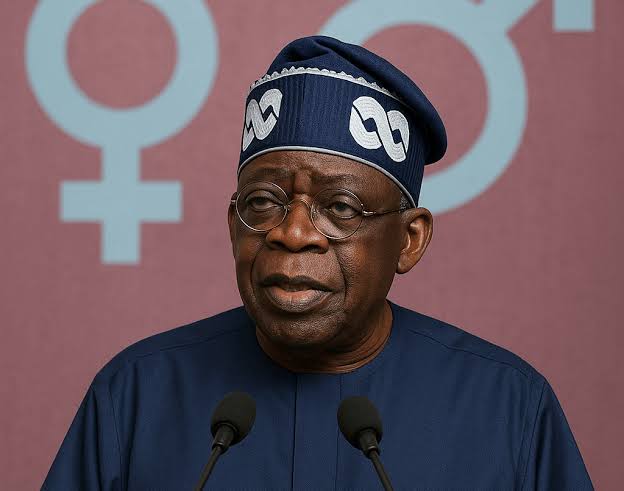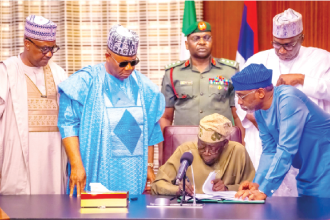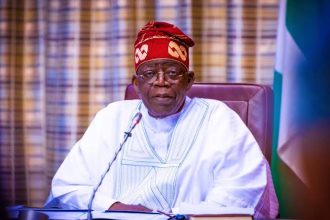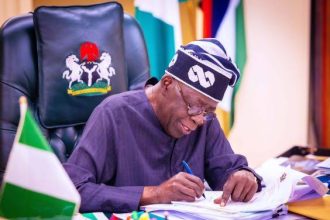Before venturing into politics, President Bola Ahmed Tinubu had already established himself as a seasoned professional, an accomplished accountant, and a respected business executive both in the United States and Nigeria. His story is one of hard work, competence, and financial prudence qualities that continue to shape his leadership style as President of Africa’s largest democracy.
While public debate often focuses on Tinubu’s political rise, what many Nigerians may not fully appreciate is the depth of his corporate experience and financial success long before he entered public service. This article explores the president’s professional background, his achievements in the corporate world, and how those experiences have influenced his governance philosophy today.
Early Life and Education
Born on March 29, 1952, in Lagos, Nigeria, Bola Ahmed Tinubu began his journey in humble beginnings but with a strong drive for education and excellence. After completing his early education in Nigeria, he moved to the United States to pursue higher studies.
Tinubu attended Richard J. Daley College in Chicago, where he earned a degree in Accounting, before advancing to Chicago State University, where he graduated with a Bachelor of Science in Accounting in 1979.
At Chicago State University, Tinubu excelled academically, graduating top of his class, an achievement that set the tone for a career defined by diligence, intelligence, and an analytical mind for numbers.
Career in the United States
Tinubu’s professional life in the United States began with some of the most respected global firms in accounting and management consultancy. His early work exposed him to complex financial systems and some of the world’s biggest corporations.
Arthur Andersen & Deloitte, Touche, Haskins and Sells
After graduation, Tinubu joined Arthur Andersen & Co., one of the world’s most prestigious accounting firms. There, he was trained in advanced auditing, risk management, and corporate financial analysis. His stellar performance caught the attention of another global accounting powerhouse Deloitte, Touche, Haskins and Sells (now known as Deloitte & Touche).
At Deloitte, Tinubu worked on the audits and management consultancy services of Fortune 500 companies including:
- General Motors (GM)
- First National Bank of Chicago
Procter & Gamble (P&G)
These engagements gave him firsthand insight into how multinational corporations were structured, financed, and managed, providing him with skills that would later become valuable in Nigeria’s evolving public finance landscape.
GTE Services Corporation and International Assignments
Tinubu later worked with GTE Services Corporation, one of America’s leading telecommunications and technology service providers at the time. There, he gained deeper experience in corporate management, systems development, and organizational auditing.
During his tenure at Deloitte, Tinubu was sent on an international assignment to Saudi Arabia to set up an accounting and auditing system for a joint venture between an oil company, National Oil, and the Saudi Arabian State-owned oil giant, Aramco.
His outstanding work on this project earned him a performance bonus of $850,000, a substantial amount in the 1980s. Combined with his savings and other income, Tinubu returned to the United States with a bank balance of over $1.8 million, long before his entry into Nigerian politics.
This project demonstrated his technical brilliance and earned him recognition as a competent international professional who understood both Western and Middle Eastern business cultures.
Return to Nigeria: Mobil Oil Career
After years of professional success abroad, Bola Tinubu returned to Nigeria and joined Mobil Oil Nigeria Limited, a multinational oil company where he served as Senior Auditor and later as Executive Treasurer.
At Mobil, Tinubu’s strategic financial management and strong grasp of international accounting standards earned him the respect of his peers and superiors. He was instrumental in the company’s internal control reforms and helped align its financial operations with global best practices.
His tenure at Mobil Oil was marked by integrity, efficiency, and innovation values that later defined his governance model in Lagos State and beyond.
Financial Independence Before Politics
By the late 1980s, Bola Tinubu had already achieved substantial financial independence through his professional career. His years of service in multinational corporations, coupled with lucrative foreign assignments, provided him with the financial base and global connections that many future politicians could only dream of.
Unlike some political figures who rely solely on state resources, Tinubu’s career foundation gave him the financial confidence to serve without personal financial desperation. This independence, many observers argue, has influenced his approach to governance particularly his focus on fiscal discipline, internally generated revenue, and reform-oriented policies.
Transition Into Politics
Tinubu’s political journey began in earnest in the early 1990s when he joined the Social Democratic Party (SDP) and became a member of the People’s Front faction led by the late Shehu Musa Yar’Adua.
In 1992, he was elected Senator for Lagos West, where he played a crucial role in the legislative process until the military coup of 1993 dissolved the National Assembly.
After the June 12, 1993, annulment, Tinubu became an active member of the National Democratic Coalition (NADECO), advocating for the restoration of democracy in Nigeria. His activism forced him into exile for several years, but his international exposure and connections helped amplify the movement’s voice abroad.
From Lagos Governor to National Leader
Tinubu returned to Nigeria in 1998 and contested for the governorship of Lagos State under the Alliance for Democracy (AD). He won the election in 1999 and served two terms until 2007.
During his tenure as Governor of Lagos State, Tinubu introduced landmark reforms that redefined subnational governance in Nigeria.
Some of his most notable achievements include:
- Revenue Reform: Establishing a modern tax and revenue collection system through the Lagos State Internal Revenue Service (LIRS), which grew Lagos’ IGR from less than ₦600 million monthly in 1999 to over ₦10 billion monthly by 2007.
- Judicial and Administrative Reforms: Strengthening institutions to promote efficiency, accountability, and rule of law.
- Urban Renewal and Infrastructure: Expanding roads, healthcare, and education across the state.
- Public Sector Efficiency: Introducing digital systems for payroll and service delivery, reducing corruption and waste.
These achievements laid the foundation for Lagos to become Nigeria’s economic powerhouse and one of Africa’s top subnational economies.
Wealth, Transparency, and Misconceptions
Over the years, President Tinubu’s personal wealth has often been a topic of public discussion. However, the facts show that he built his wealth through legitimate professional means long before politics.
Working for multinational corporations like Deloitte, GTE, and Mobil Oil, and earning significant international bonuses, gave him both financial and intellectual capital.
It is therefore inaccurate to assume that his financial standing was built solely from his time in public office. His corporate track record provides verifiable evidence of his competence and financial success dating back to the 1980s.
Moreover, Tinubu has consistently emphasized that wealth should be a product of value creation, investment, and innovation, not corruption or manipulation. His example continues to challenge young Nigerians to pursue professionalism and excellence in their chosen fields.
Tinubu’s Legacy of Fiscal Discipline
One of the most enduring traits of Bola Tinubu’s leadership, both as governor and now as president, is his commitment to fiscal discipline and innovative finance.
His reforms as Lagos governor inspired similar changes nationwide, encouraging states to diversify their revenue sources, embrace digital tax systems, and reduce reliance on federal allocations.
Today, as president, Tinubu continues to apply those principles through national reforms such as restructuring Nigeria’s tax system, removing fuel subsidies, and promoting transparency in fiscal management.
Conclusion: A Legacy Built on Merit and Hard Work
President Bola Ahmed Tinubu’s story is more than a tale of political success it is a testament to how professional excellence and integrity can pave the way for transformative leadership.
Long before his emergence as Nigeria’s political leader, Tinubu had proven his mettle in some of the world’s most competitive corporate environments. His achievements as an accountant, auditor, and executive shaped the values of efficiency, accountability, and innovation that define his administration today.
While opinions about politics may vary, the facts of Tinubu’s pre-political career remain clear: he was a successful, well-compensated, and globally recognized professional who brought private-sector discipline into public service.
His life continues to remind Nigerians that great leadership begins with a foundation of competence, experience, and dedication to hard work values that remain essential for building a prosperous nation.













Tinubu’s pre-political career is central to understanding his approach to governance. His time at Deloitte and Mobil Oil built a foundation of professionalism, strategic planning, and financial expertise that would later shape his political success. However, questions about the full extent and transparency of his wealth remain a legitimate subject of public debate.